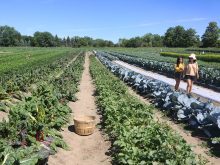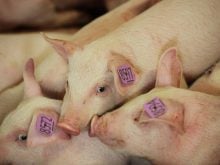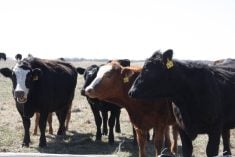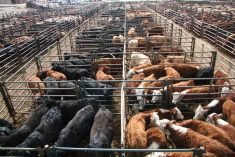Even after international trade resumes for Canada’s battered beef industry, further compensation may be needed to help producers adjust to new market realities.
Cow-calf producers are likely the next group to feel the impact of the bovine spongiform encephalopathy case that banned Canada from international beef markets.
Even if the border reopens by fall, calf prices are likely to be depressed, said the owner of Gateway Livestock Marketing at Taber, Alta.
“If those calves start selling at 25 cents a pound, the Americans will demand that they can buy them and our feeding industry is gone,” said Les Smith, who has been a professional marketer for 15 years. His company works with cow-calf producers in Alberta.
Read Also
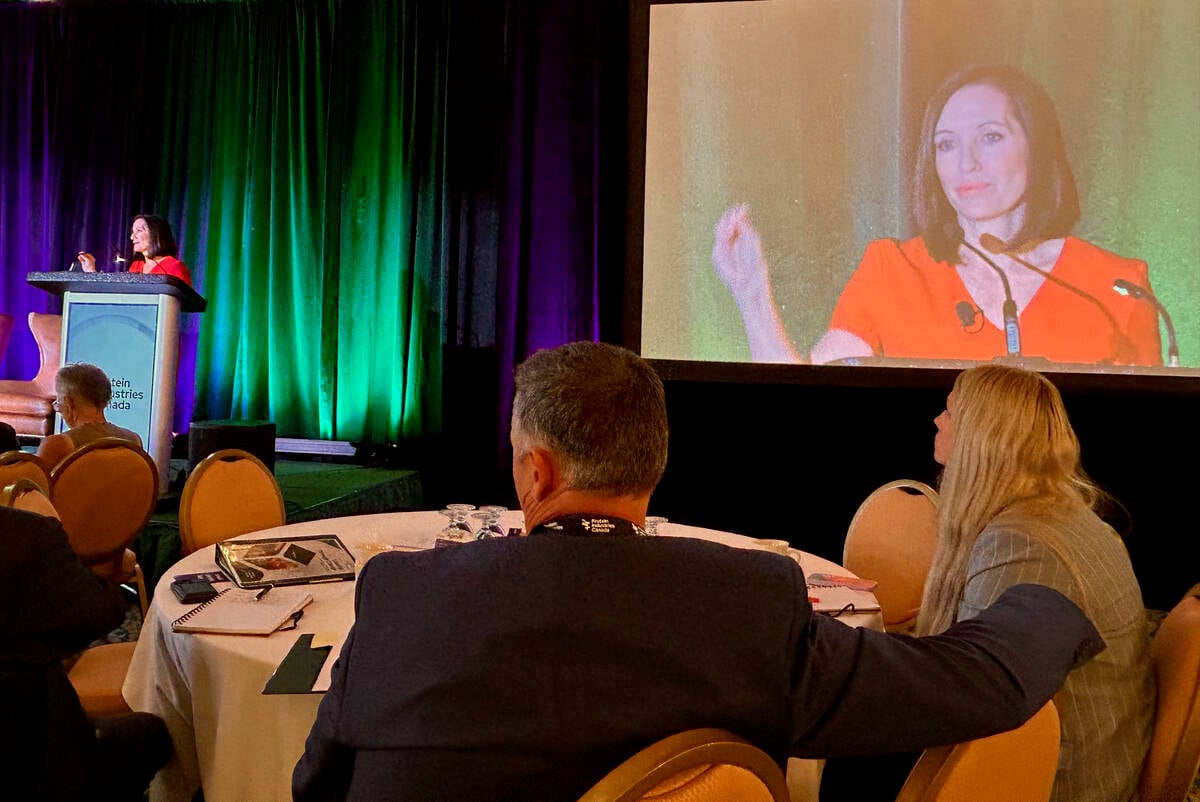
Canada told trade crisis solutions in its hands
Canadians and Canadian exporters need to accept that the old rules of trade are over, and open access to the U.S. market may also be over, says the chief financial correspondent for CTV News.
“We’re getting an awful lot of calls about what they should do and I can’t even give them an answer,” he said.
“I don’t think our federal and provincial governments have enough money to bail this industry out.”
Each province is administering its own BSE recovery program. Alberta was first to offer compensation and has already paid out about $1.4 million.
Saskatchewan’s program has been available for about two weeks but has only received one aid application. Agriculture department officials hope cattle may start moving again because XL Foods in Moose Jaw resumed killing last week.
British Columbia announced its program was set to go July 4.
B.C. has 10,000-15,000 market-ready animals. Its challenges are unique because the industry depended on American feedlots and packers, rather than selling to Alberta.
New business relationships will have to be developed as producers scramble to find markets for their fat animals. Alberta feedlots are not interested in replacements at present and sales are likely to be depressed this fall.
“We’re between a rock and a hard place. We’re trying to get the market started and it’s not pretty,” said David Borth, manager of the B.C. Cattlemen’s Association.
“The big impact will be felt in a month or so when we have to start marketing our calves,” said Borth.
He hopes cow-calf producers may receive financial assistance from the new Canadian Agriculture Income Stabilization Program, the replacement for the Net Income Stabilization Account program.







